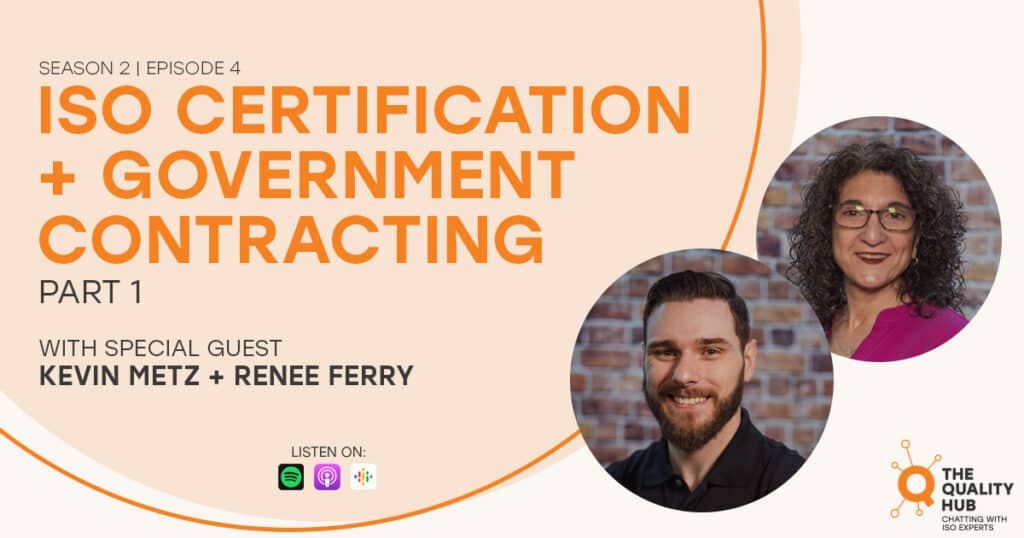Understanding the Relationship between ISO Certification and Government Contracts
Securing a government contract is a complex process that demands a strategic approach and careful attention to detail. From the initial release of the contract to the final awarding, each step involves decisive actions and decisions that can affect your chances of winning.
This comprehensive article explores the key steps involved in government contracting, the importance of maintaining necessary ISO certifications, and the strategies for demonstrating a commitment to excellence that can help secure these lucrative opportunities.
What are the Key Steps Involved in the Government Contracting Process?
Release of the Contract
The government releases an initial contract to gauge interest, answer questions, and define the scope of work more thoroughly.
Request for Bid (RFB)
Following the initial release, the government issues an RFB, inviting companies to submit their proposals.
Proposal Submission
Companies submit detailed proposals. The government evaluates these based on various factors, including pricing, competency, and the ability to fulfill contract requirements.
Awarding the Contract
Depending on the project’s complexity and requirements, contracts are awarded to selected companies, which can be a single company or a group of companies.
What types of ISO Certifications are Required for Government Contracts?
When it comes to securing government contracts, several ISO certifications stand out as essential, each addressing different aspects of organizational quality and efficiency.
ISO 9001 Certification
The most required ISO certification is ISO 9001, which focuses on quality management systems. This standard ensures that a company can consistently provide products and services that meet customer and regulatory requirements, a critical factor for government agencies prioritizing reliability and consistency in their procurement processes.

ISO 14001 Certification
Another significant certification is ISO 14001, which pertains to environmental management systems. Government contracts, especially those related to construction, manufacturing, and energy sectors, often demand this certification to ensure that contractors adhere to environmental regulations and demonstrate a commitment to sustainability.
ISO 27001 Certification
ISO/IEC 27001 is increasingly required, particularly for contracts involving sensitive information or cybersecurity. This certification addresses information security management, ensuring that a company can protect data effectively, a crucial consideration for government entities handling classified or sensitive information. These certifications not only facilitate compliance with stringent government standards but also enhance a company’s reputation and competitiveness in the bidding process.
Are ISO Certifications Mandatory for all Government Contracts?
ISO certifications are not mandatory for all government contracts, but they are increasingly becoming a significant requirement for many. The necessity of ISO certifications often depends on the specific nature of the contract and the sector involved.
For instance, contracts in sectors like defense, aerospace, and healthcare typically demand higher standards of quality, security, and environmental management, making ISO certifications such as ISO 9001 (Quality Management), ISO 14001 (Environmental Management), and ISO/IEC 27001 (Information Security Management) more likely to be required.
Government agencies seek to mitigate risks and ensure high standards of performance and compliance through these certifications. While smaller or less complex contracts may not explicitly require ISO certifications, having them can significantly enhance a company’s credibility and competitiveness.

While not universally mandatory, ISO certifications can be a decisive factor in the selection process for government contracts, demonstrating a commitment to excellence and adherence to internationally recognized standards.
In addition to ISO Certifications, a contract may require CMMI (Capability Maturity Model Certification) or CMMC Certification. To learn more about those standards, you can visit our CMMI Page and our CMMC Page.
Bidding Without Certification
Can I bid on a Contract without Certification?
While some contracts allow bidding before certification, companies must often show they are in the process of acquiring it.
For example, the current (2023-2024) SEWP VI contract allows for companies to bid on the contract first, then prove certification within a certain time frame.
Demonstrating Commitment to Certification
Letter of Commitment
Companies can use tools like a Letter of Commitment that is submitted with the customer proposal, signed by a senior executive; to indicate they are under contract with an ISO consulting firm or Registrar for certification.
Here at Core, our Letter of Commitment is on our letterhead, has a date range for expected date of certification and is signed by our President, Scott Dawson. This lets the government know that the company is under contract with us to be certified. Core Business Solutions has been using this tool for many customers over the years.
Are there Some Government Contracts that Require more than One Certification?
Yes, there are many government contracts that require more than one ISO certification. The complexity and scope of certain government projects often necessitate multiple certifications to ensure that a contractor can meet diverse and stringent standards across various areas of operation.
For example, a defense contract might mandate both ISO 9001 and ISO/IEC 27001 certifications. ISO 9001 ensures that the company has strong quality management systems in place, essential for consistently producing high-quality products. ISO/IEC 27001 ensures that the company can manage and protect sensitive information, which is necessary for maintaining national security and safeguarding classified data.

Similarly, a contract related to environmental engineering might require ISO 9001, ISO 14001, and ISO 45001 certifications. ISO 14001 focuses on environmental management systems, ensuring that the company adheres to environmental regulations and promotes sustainability. ISO 45001 addresses occupational health and safety management, ensuring a safe working environment for employees, which is essential for projects involving potentially hazardous activities.
Multiple ISO Certifications
Multiple certifications are often necessary to demonstrate comprehensive compliance with the multifaceted requirements of complex government contracts. These certifications collectively assure the contracting agency of the contractor’s ability to deliver high-quality, secure, environmentally friendly, and safe services or products.
Helpful Resources:
ISO and Government Contracting Podcast Part 1

In Part 1 of a 2-part series entitled ISO Certification and Government Contracting, host Xavier Francis discusses the role of ISO certifications in securing government contracts with guests Renee Ferry and Kevin Metz from Core Business Solutions. They cover key steps in the government contracting process and highlight the challenges businesses face in securing contracts. Listen Now
Do Government Contracts that Require ISO Certification Require you to Maintain ISO Certification?
Yes, if a government contract requires ISO certification as part of its terms, your company will need to maintain and renew the certification throughout the contract. Here are key points to consider:
Continuous Compliance
Contractual Obligations:
If the contract specifies that your company must maintain ISO certification, failure to renew it could lead to breaches of contract, penalties, or even termination of the contract.
Regular Audits:
ISO certifications, like ISO 9001, typically require regular audits (surveillance audits) to ensure ongoing compliance with the standards. These audits are often conducted annually or bi-annually, with a more comprehensive re-certification audit every three years.
Importance of Renewal
Demonstrating Commitment:
Regularly renewing your ISO certification demonstrates a continuous commitment to quality management and improvement, which is essential for maintaining trust and reliability with the government agency.
Risk Management:
Ongoing compliance with ISO standards ensures that your company continues to adhere to best practices in quality management, thereby reducing risks associated with product or service delivery.
Continuous compliance not only fulfills contractual obligations but also supports the overall quality and effectiveness of your business operations. Make sure to stay vigilant and proactive in managing your certification processes to ensure ongoing success and compliance.
Are there consultants who specialize in helping companies get ISO certified for DoD contracts?
Yes. That’s us. We specialize in helping companies get ISO certified and we can help you maintain your certification once you are awarded the contract.
How Core Can Help
Are you aiming to win SEWP 6, Pacts III, or other government contracts? Let us help you get certified swiftly and efficiently. We specialize in assisting small businesses in achieving essential certifications like ISO 9001, ISO 14001, ISO 45001, ISO 27001, ISO 20000-1, CMMI, and NIST/CMMC.
Don’t miss out on your next RFP
Our expert team supports hundreds of clients annually, ensuring they meet all contract requirements. Whether you’re an engineering firm, staffing agency, or IT service provider, we understand your unique needs. Choose between our convenient online remote consulting or personalized onsite assistance.
Get certified fast, win more contracts, and grow your business with us!
About Scott Dawson
Since 2010, Scott Dawson, President of Core Business Solutions, has been an active voting member of the U.S. Technical Advisory Group (TAG) to ISO Technical Committee 176 (TC 176). TAG 176 members meet to discuss and develop U.S. positions for Quality Management standards, including ISO 9001:2015, which will be revised in 2026.




